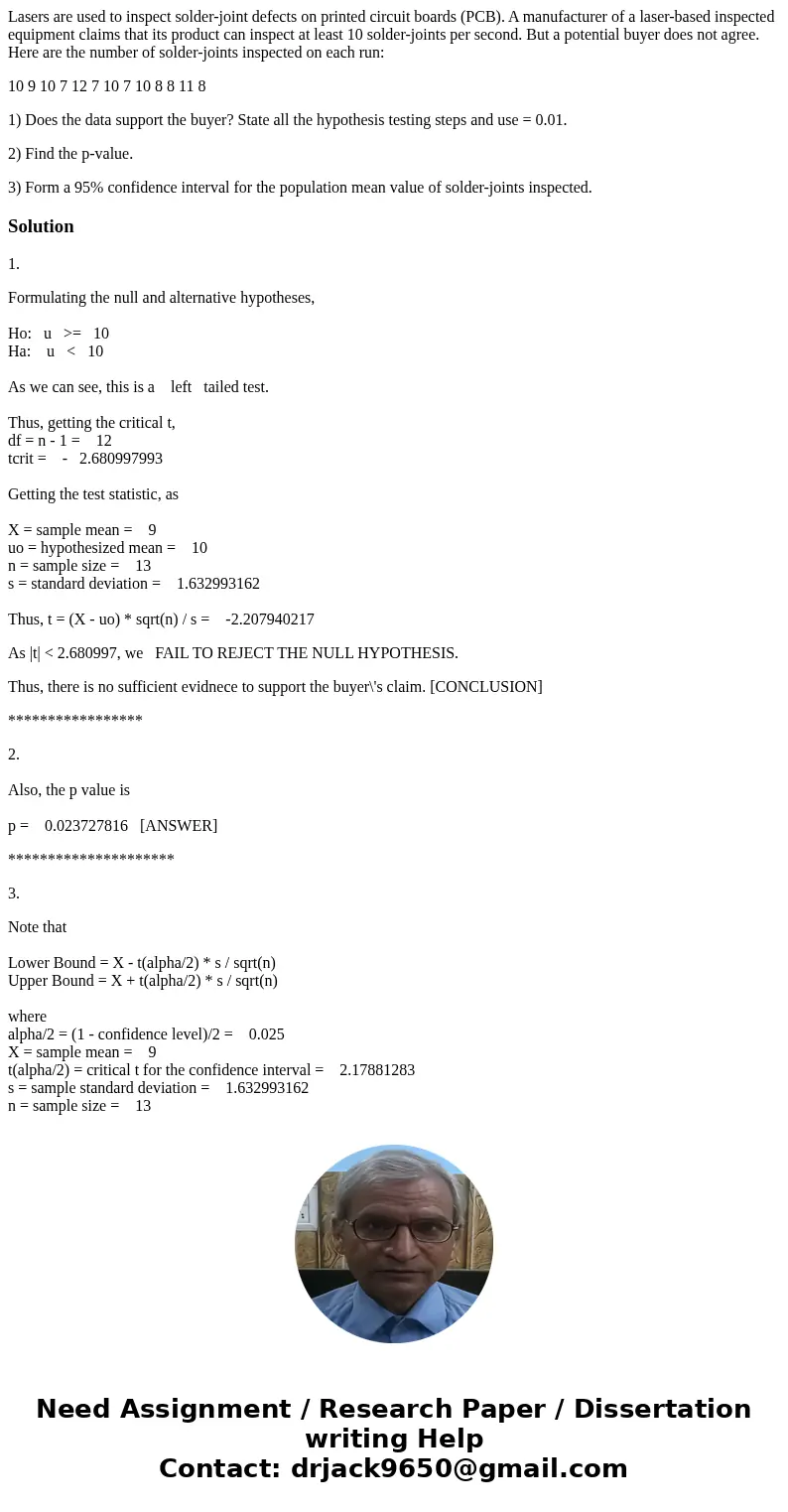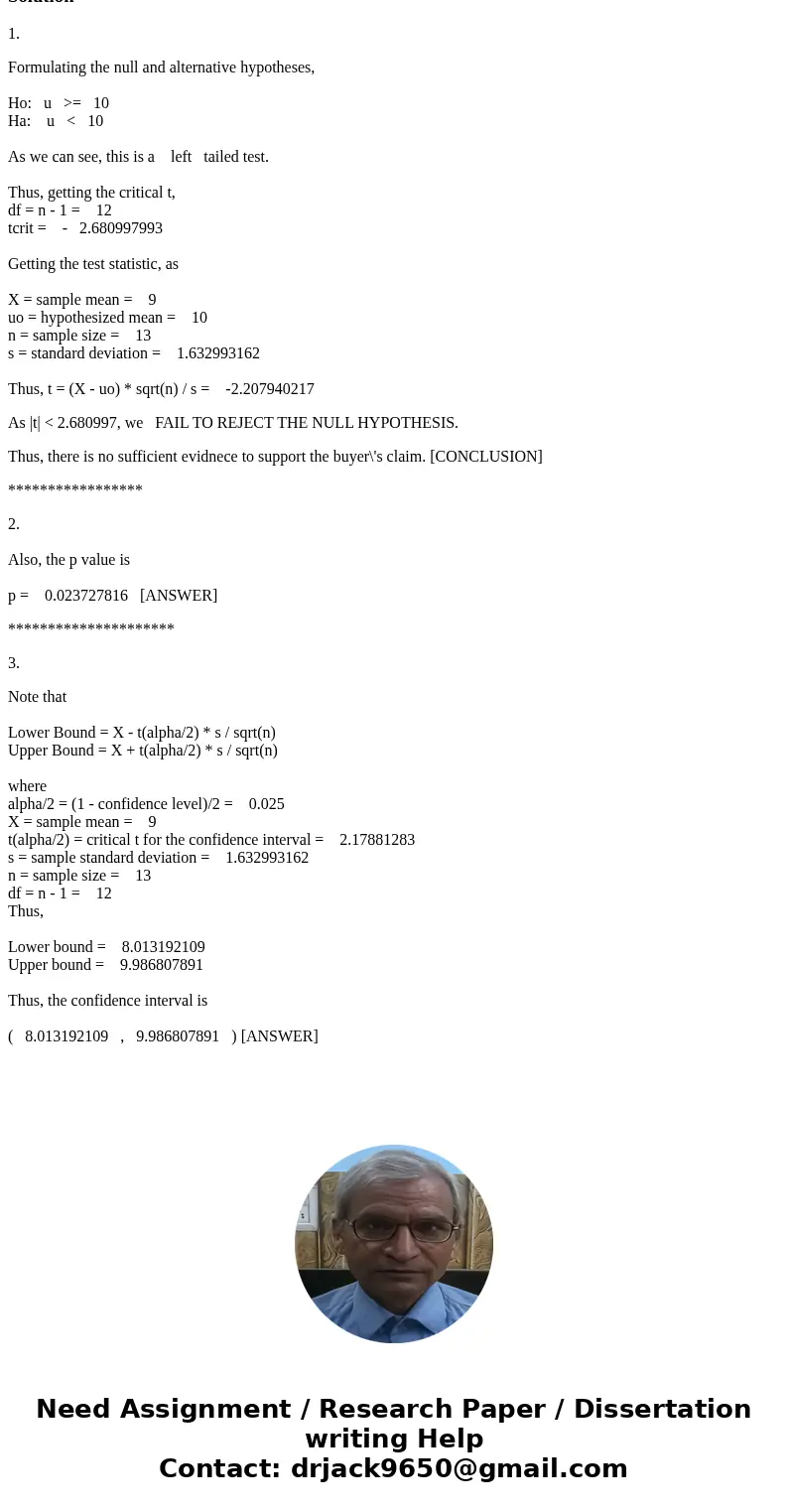Lasers are used to inspect solderjoint defects on printed ci
Lasers are used to inspect solder-joint defects on printed circuit boards (PCB). A manufacturer of a laser-based inspected equipment claims that its product can inspect at least 10 solder-joints per second. But a potential buyer does not agree. Here are the number of solder-joints inspected on each run:
10 9 10 7 12 7 10 7 10 8 8 11 8
1) Does the data support the buyer? State all the hypothesis testing steps and use = 0.01.
2) Find the p-value.
3) Form a 95% confidence interval for the population mean value of solder-joints inspected.
Solution
1.
Formulating the null and alternative hypotheses,
Ho: u >= 10
Ha: u < 10
As we can see, this is a left tailed test.
Thus, getting the critical t,
df = n - 1 = 12
tcrit = - 2.680997993
Getting the test statistic, as
X = sample mean = 9
uo = hypothesized mean = 10
n = sample size = 13
s = standard deviation = 1.632993162
Thus, t = (X - uo) * sqrt(n) / s = -2.207940217
As |t| < 2.680997, we FAIL TO REJECT THE NULL HYPOTHESIS.
Thus, there is no sufficient evidnece to support the buyer\'s claim. [CONCLUSION]
*****************
2.
Also, the p value is
p = 0.023727816 [ANSWER]
*********************
3.
Note that
Lower Bound = X - t(alpha/2) * s / sqrt(n)
Upper Bound = X + t(alpha/2) * s / sqrt(n)
where
alpha/2 = (1 - confidence level)/2 = 0.025
X = sample mean = 9
t(alpha/2) = critical t for the confidence interval = 2.17881283
s = sample standard deviation = 1.632993162
n = sample size = 13
df = n - 1 = 12
Thus,
Lower bound = 8.013192109
Upper bound = 9.986807891
Thus, the confidence interval is
( 8.013192109 , 9.986807891 ) [ANSWER]


 Homework Sourse
Homework Sourse